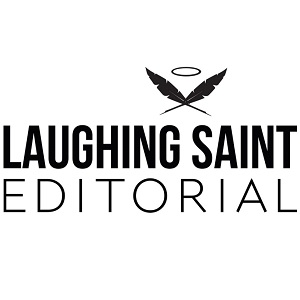Nearly every day, I find myself grappling with an impossible sentence. It's an occupational hazard. Most of the time, they don't bother me. This is probably because I think of editing as an exercise in verbal Tetris: I get not-entirely-random bits of information, sort them into an order that fits (grammar), produces meaning (semantics), and achieves some effect (pragmatics). When the words stack up just right, I get to move up a level. Bit by bit, everything's supposed to come together in a way that fits.
But what happens when it doesn't work that way? What happens when pile of blocks at the bottom of the screen looks like a jumbled mess?
A jumbled mess is what an impossible sentence feels like. There are words there, yes, but they don't make sense, or they've been used to make all the sense all at once, or their sense is ambiguous at best. Trying to straighten them out just seems to make them harder to deal with.
So You Think You've Got an Impossible Sentence. How Do You Fix It?
In an ideal scenario, I can talk or write to the author of the impossible sentence in question. I'll read the sentence aloud or have the author read the sentence aloud, and then I'll say something like: "So, I wasn't sure of what you meant in that sentence" or "There was a lot going on in that sentence." And the clincher: "Forget the writing. Step outside the paper for a moment. Don't think about the imaginary audience you're trying to impress or convince. Just between you and me, what are you really trying to say in this sentence? What is it that you're trying to get it to do?"
I get one of two types of responses to that question:
Type 1: The long explanation about whatever is being asserted in the impossible sentence. Sometimes it takes my student or client two, four, six, or more sentences to explain what he or she was really trying to say. My response to that is straightforward: "How many sentences did it take you to explain that to me?" Wait for response. "And you're trying to fit all that into one sentence? Try writing all that out, just like you said it. Then determine whether it's so long and detailed that it needs to be its own paragraph. You can polish up the language later, after you get the ideas clarified."
Type 2: The brief explanation about whatever is being asserted, plus a long explanation about why it was necessary to put that idea in that particular place in the paper. This is the more-likely response for writers who have an impossible sentence that repeats an idea that's stated elsewhere in the paper (i.e., that's repetitious). Depending on the circumstances, I would suggest that the author use multiple sentences to explain the idea and how it connects to other ideas in the paper (see Type 1, above), or I'd recommend leaving out whatever has been unnecessarily repeated.
Possibly Making Sense from an Impossible Sentence
Here's an example from a recent paper I edited (the words have been changed to protect the innocent, but the parts of speech and punctuation in this sentence are the same):
The artwork is a golden arch with an obvious curve, the work different from Freud’s principle of impulse control but it can rapidly abstract viewer’s gaze.
That's a whopper. In this case, I didn't have access to the writer to ask "What are you really trying to say here?" about the sentence. So I had to employ the Tetris strategy: What are the main blocks of this sentence? How do they make sense independently? How can I rearrange and reshape them so that they achieve a pragmatic and semantic purpose?
I identified the following blocks: the artwork, the golden arch, the golden arch's curve, the principle of impulse control, the viewer's gaze, and the rapid [something] of the viewer's gaze.
Already, I can see that I don't understand the vocabulary choice for "abstract," which is like being able to see the left-hand side of a straight-line piece in Tetris without being able to see its right-hand side (is it an L-shaped piece, or is it just straight?). Here's how I rearranged the sentence to give it some clearer meaning:
The artwork is a golden arch with an obvious curve. Its appeal is not based on Freud’s principle of impulse control, despite the fact that the artwork immediately draws the viewer’s gaze to the work’s abstract features.
I made sure to append a note to that change asking the author to ensure that the edit preserved the intended meaning.
In short, if you're looking for a quick fix to a sentence that's hard to read or doesn't make sense, set back and ask "What are you really trying to say here?" If the answer takes more than one brief sentence, consider breaking your impossible sentence into smaller bits. If it requires lots of apologia about trying to connect the dots to other ideas in the paper, try simplifying your points and eliminating redundancies.
If all else fails, you can always ask your friendly neighborhood copyeditor to take a look and provide some solutions!
